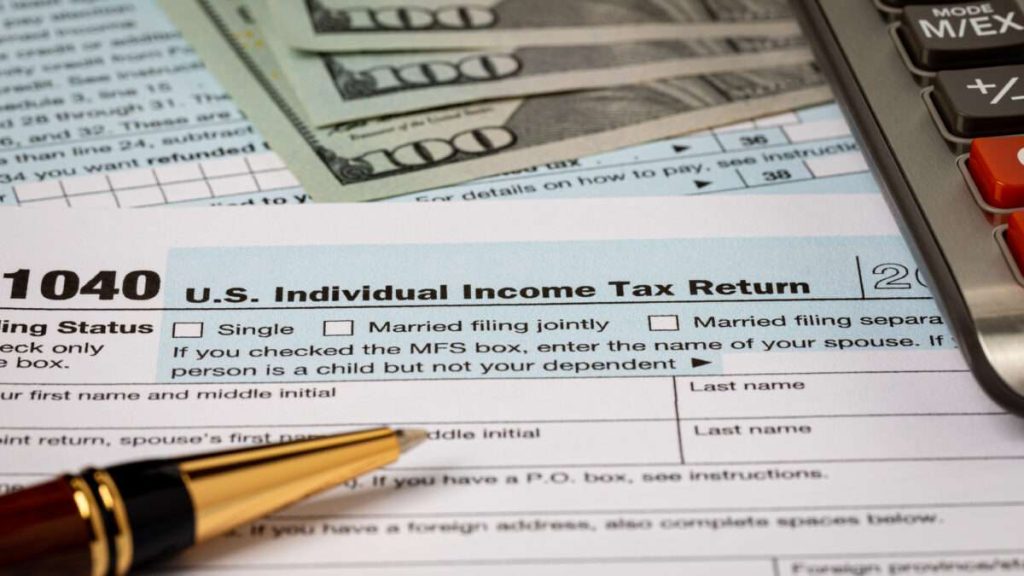Most Americans face tax hikes starting in 2026, and the increased federal tax bite will come about without Congress lifting a finger. That’s because 2017’s Tax Cuts and Jobs Act (TCJA) expires at the end of 2025, and despite some politicians’ contrary claims, a majority of Americans benefited from that law. The end of tax cuts for so many people necessarily results in corresponding increases to come.
Tax Cuts for Most, but With a Time Limit
“Unless Congress acts, the vast majority of Americans will see higher, more complicated taxes beginning in 2026 as major provisions from the Tax Cuts and Jobs Act of 2017 expire,” warns the Tax Foundation. “The TCJA reduced average tax burdens for taxpayers across the income spectrum and temporarily simplified the tax filing process through structural reforms. It also boosted capital investment by reforming the corporate tax system and significantly improved the international tax system.”
The widespread benefits of the TCJA shouldn’t be a matter for debate. But there’s confusion because Team Biden and fans of high taxes fibbed about the law leading up to the 2020 presidential election.
“Biden’s false claim that no one but the rich got Trump’s tax cuts,” headlined a 2019 Washington Post Glenn Kessler piece about the debate over the law. “Most Americans received a tax cut,” he added.
“About 65 percent of households paid less in individual income taxes in 2018 as a result of the TCJA,” wrote the Tax Policy Center’s Howard Gleckman. “About 6 percent paid more. The rest paid about the same.”
Adjusting for all federal taxes under pre-TCJA law, the Cato Institute’s Chris Edwards commented, “lower‐ and middle‐income groups received the largest relative individual income tax cuts.”
So, there’s widespread agreement that a law which cut taxes for most Americans is poised to expire, resulting in higher taxes. But, just as the benefits of the tax cuts varied across the population, so will the size of the bite taken by tax increases starting in 2026.
Tax Hikes for All
“The largest average tax hikes would be experienced by taxpayers who reside in California’s congressional districts,” note the Tax Foundation’s Garrett Watson and Erica York. “For example, the congressional district covering the San Francisco area would see an average tax hike of $16,127 per taxpayer, the highest in the U.S. By contrast, northern New York City would see an average tax increase of $807 per taxpayer under TCJA expiration.”
That link takes you to a tool that lets you look up the estimated impact of TCJA expiration on taxpayers in states and congressional districts across the country.
Separately, the Tax Foundation published a tax calculator that lets you estimate the impact of TCJA expiration on you and your family, given specifics such as marital status, income, number of children, and choice of standard or itemized deductions. The calculator accounts for “most aspects of the federal individual income tax code except provisions related to business and self-employed income.”
That said, extending the TCJA’s tax cuts has high costs of its own since that would reduce the amount of money collected by the federal government to spend on its projects.
Tax Cuts and Tradeoffs
“Federal tax revenues would fall by more than $4 trillion on a conventional basis and by nearly $3.5 trillion on a dynamic basis over the coming decade; and without spending cuts, debt and deficits would increase,” concedes a May Tax Foundation report on options regarding the law.
“By the year 2050, permanent extension of TCJA laws would reduce federal revenues from 18.4 percent to 17.1 percent of annual Gross Domestic Product (GDP),” Jagadeesh Gokhale and Mariko Paulson of the University of Pennsylvania’s Penn Wharton Budget Model specify. “Federal debt held by the public would rise from 226.0 percent of GDP to 261.1 percent by 2050.”
But that decrease in revenue and corresponding rise in debt and deficits may matter only if it hampers a serious plan to control the federal government’s ongoing spending spree. Separately, the Penn Wharton Budget Model predicts that “a maximum debt-GDP ratio of 200 percent can be sustained even if investors believe (maybe myopically) that a closure rule will then prevent that ratio from increasing into the future.” They say the real ceiling on federal debt is more like 175 percent of GDP before the financial markets entirely lose faith in the U.S. economy. Debt as a percentage of GDP above that point is disastrous, whether at 226 percent or 261 percent.
It makes sense, then, for Americans to submit to significant tax hikes only if those increases go to balancing the federal budget, eliminating deficits, and controlling debt. Otherwise, we’re going to pay more for what is essentially the same very bad outcome.
A Need for Serious Reform
Benefits of extending the TCJA, on the other hand, operate independent of faith in a sudden surge in responsibility among the political class. Extending the law’s provisions “would boost long-run GDP by 1.1 percent and employment by 913,000 full-time equivalent jobs,” according to the Tax Foundation.
For extending the TCJA, the Tax Foundation considers two options, both including modifications that seek to reduce the hit to federal revenues while maximizing gains for individuals. Option 2, for example, “broadens the individual income tax base by ending the income tax exclusion for employer-provided fringe benefits, most notably health insurance.”
That’s a matter of tweaking the current system around the edges to maintain relief for individuals and a faster-growing economy. Tax Foundation experts also propose possible fundamental changes, including entirely dumping the income tax system in favor of a consumption tax. That has the potential to significantly boost personal income as well as GDP and reduce the national debt. Of course, the gains really apply only if the government also reduces spending.
But such fundamental reform is a lot to ask of a political class that spent us into a corner and now wants tax hikes so there’s even more of our money to spend. Letting the TCJA expire requires placing enormous faith in people who got us into a fiscal mess to begin with.
Fundamental reforms to the federal government’s finances are absolutely necessary. Until that happens, we should resist stealth tax hikes so we can keep our hard-earned money for ourselves.
The post Brace for Big Tax Hikes in 2026 Unless Congress Acts appeared first on Reason.com.





